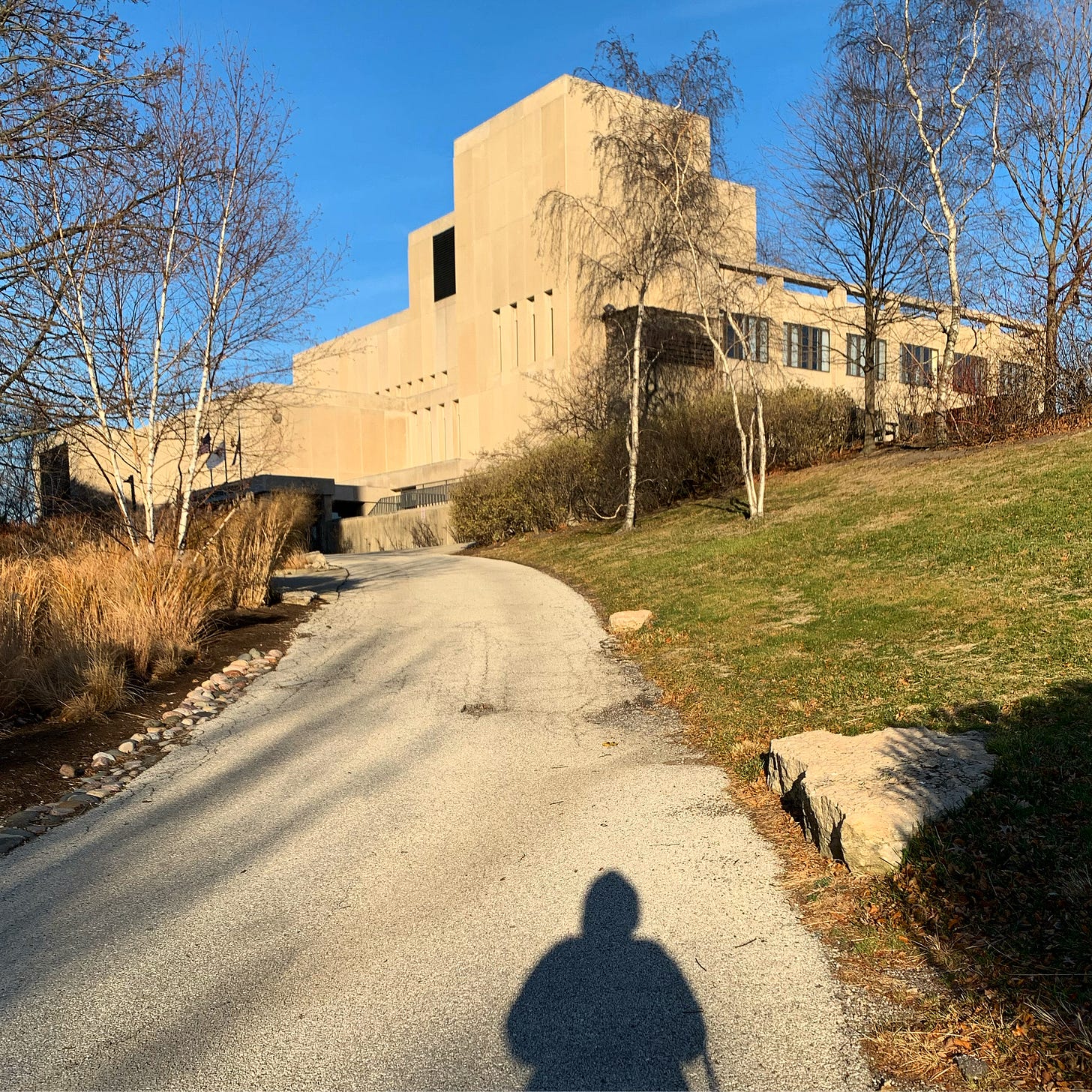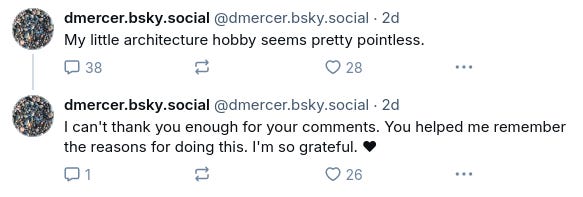
The other day on Bluesky I saw a skeet, or whatever you call it, by a fellow architecture enthusiast like myself and it got me thinking. Why do we do what we do?
While I’m not quite sure what the answer to that question is, I do know I have found comfort wherever I can since the pandemic, whether it’s listening to music, spending time with my pets, doing art, taking long walks, or partaking in what I like to call “stalking” old buildings. When times are tough you have to embrace your hobbies, and I’d definitely consider one of my favorite pastimes to be taking photos of whatever catches my eye. I’ve been doing it for as long as I can remember (yes, it’s true I am a photography major dropout circa 1998). At times, it can feel somewhat pointless to take endless amounts of pictures, many of which may never be shared (only because I become overwhelmed by the sheer volume of them all). There are probably thousands of photos, mainly of historic structures, that I’ve never posted anywhere. They are just dying away in the cloud and various hard drives. But I’m still glad I took them.
If my photos bring me a tiny bit of happiness, then that’s a good thing, right? And if I can spread that happiness to others, along with a better appreciation for the built environment, well, then it doesn’t seem so pointless. I’d like to think why I do what I do is a blend of curiosity and a photographer’s hungry eye, combined with a desire to document what might be potentially lost forever - something that Chicago is pretty good at. But here’s the catch. As much as the act of taking photos can be enjoyable, it also requires energy (which is harder to find nowadays), organizational and editing skills, and using the right platform to share them. Flickr, my original image hosting service, sorta died awhile back (although I wish I never abandoned it), Instagram became TikTok with its pivot to reels, and alternatives don’t seem to be taking off.
Then a few days later I saw another skeet that put into so many words what I have felt for quite awhile about photography in general. I admit that I am taking fewer photos than I ever have in my adult life. Long before smart phones, I always carried a camera with me. Now, I can’t be bothered. I used to feel it was very important to document historic buildings facing demolition. Again, I can’t be bothered. I would waste a lot of time (in my mind) researching the history of these structures. Like, I already said…I can’t be bothered. It’s a combination of a lot of things, possibly even the dead internet theory is to blame, but Eric is correct when he says that it feels more like a chore than a hobby. The task itself can feel overwhelming, and it takes a significant effort to overcome the burden of the numerous photos I’ve intended to research and share over the years. I always say “I’ll get around to it” and then literal years pass by.
I will never forget a brief moment from nearly thirteen years ago. Some friends and I stopped on U.S. Route 41/Indianapolis Boulevard in Northwest Indiana to take photos of some vintage neon signs. I recall that we paid a visit to Johnsen’s Blue-Top Drive-In in Highland with its very tall, ceramic coated steel sign. Anyway, while we were doing this (and I wish I could remember the name of that now-defunct place but I do know we also paid a visit to Miner-Dunn Hamburgers), a man driving down the busy road pulled over and parked next to us. He got out of his car, approached the group and asked “Why?” I looked directly at him and replied “Why not?” With that, he gave me a puzzled look and got back into his car. It was as simple as that. We don’t always need to give answers. Just keep doing what you do. That’s my intention for 2025.






i've been doing it every day for years in a weblog. no one reads those anymore. but it's not a chore, it's love. anyway, what else would i be doing.
I enjoy reading your posts, so I hope you won't give it up entirely. I appreciate your interest in Ed Dart, as I've owned one of his houses since the early 2000s. FWIW, Wilma Dart, her daughter Elaine and Dart's former business partner Don Hackl all corrected me when I referred to Dart as "Ned." Apparently his sister Susan was about the only person who called him Ned, and Ed Dart largely despised her. She may have gotten revenge with the crappy book she wrote about her brother after he died. It was more Susan autobiography than about Dart and his work.
I hope you get inspired to write again in the future.